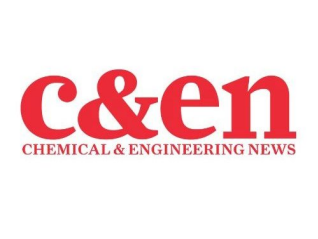FOR IMMEDIATE RELEASE
ACS News Service Weekly PressPac: December 01, 2021
Charge-conducting MOFs open doors to new applications
“Conducting charge is MOFs’ new trick”
Chemical & Engineering News
Metal organic frameworks (MOFs) — honeycomb-like structures of metal ions and organic linkers — have exceptionally large surface areas and porosities that scientists have exploited for various applications, such as industrial carbon capture, fuel storage and harvesting water from the air. Recently, MOFs were also found to conduct electrical charge, opening doors to new applications, according to a cover story in Chemical & Engineering News, an independent news outlet of the American Chemical Society.
The idea that MOFs could be electrically conductive has flown under the radar until recently, writes Senior Correspondent Mitch Jacoby. Scientists are now discovering that MOFs can conduct charge through multiple mechanisms. For example, charge can move through a network of bonds between metal centers and functional groups in the organic linkers. Studying the ways that MOFs conduct charge could help chemists boost the materials’ conductivity and understand how to make them perform better in various charge-based applications.
MOFs’ enormous surface areas could allow them to outperform other charge-conducting materials, such as activated carbon, that are currently used in fuel cells and electronic sensors. For instance, a collaboration between Massachusetts Institute of Technology researchers and the Italian sports car manufacturer Lamborghini has produced MOF-based supercapacitors to power an all-electric concept muscle car. Other researchers have used MOFs’ conductive properties to develop chemical sensors for toxic gases or neurotransmitters, or to catalyze electroreduction reactions to make syngas. Now that MOFs have revealed their new trick, scientists are eager to fully explore the potential of the versatile materials.
###
The American Chemical Society (ACS) is a nonprofit organization chartered by the U.S. Congress. ACS’ mission is to advance the broader chemistry enterprise and its practitioners for the benefit of Earth and all its people. The Society is a global leader in promoting excellence in science education and providing access to chemistry-related information and research through its multiple research solutions, peer-reviewed journals, scientific conferences, eBooks and weekly news periodical Chemical & Engineering News. ACS journals are among the most cited, most trusted and most read within the scientific literature; however, ACS itself does not conduct chemical research. As a leader in scientific information solutions, its CAS division partners with global innovators to accelerate breakthroughs by curating, connecting and analyzing the world’s scientific knowledge. ACS’ main offices are in Washington, D.C., and Columbus, Ohio.
To automatically receive press releases from the American Chemical Society, contact newsroom@acs.org.
Note: ACS does not conduct research, but publishes and publicizes peer-reviewed scientific studies.
Media Contact
ACS Newsroom
newsroom@acs.org


